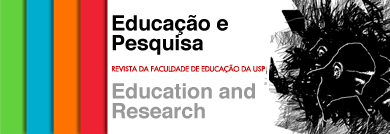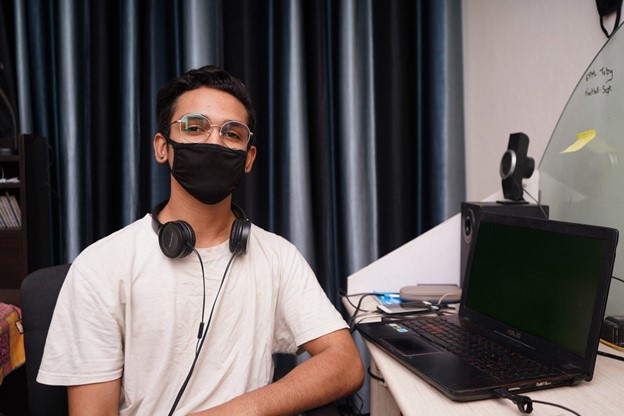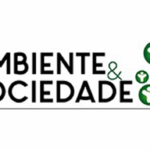Mercedes de Agüero Servín, PhD in Education, Universidad Autónoma de Aguascalientes. Aguascalientes, Mexico.
Maura Pompa Mansilla, Head of the Department of Translational Research in Education, Universidad Nacional Autónoma de México. Coyoacan, Mexico.
Melchor Sánchez-Mendiola, PhD in Science Education in Health Sciences, Universidad Nacional Autónoma de México. Coyoacan, Mexico.
Mario Alberto Benavides Lara, Master in Pedagogy from the Faculty of Philosophy and Letters, Universidad Nacional Autónoma de México. Coyoacán, Mexico.
 The paper Perception of professors regarding the transition to emergency remote teaching in a large public university in Mexico during the pandemic presents the most relevant results from a follow-up questionnaire applied to a sample of professors from the largest public university in Mexico, the National Autonomous University of Mexico (UNAM). The research sought to identify and describe the opinions, experiences, characteristics, and conditions in which 513 professors had to switch to remote teaching using technological tools during the pandemic. Data were collected by an exploratory online survey with Likert-type multiple choice and open questions applied to a non-random sample of 513 professors at UNAM.
The paper Perception of professors regarding the transition to emergency remote teaching in a large public university in Mexico during the pandemic presents the most relevant results from a follow-up questionnaire applied to a sample of professors from the largest public university in Mexico, the National Autonomous University of Mexico (UNAM). The research sought to identify and describe the opinions, experiences, characteristics, and conditions in which 513 professors had to switch to remote teaching using technological tools during the pandemic. Data were collected by an exploratory online survey with Likert-type multiple choice and open questions applied to a non-random sample of 513 professors at UNAM.
Results show that 43% of the participants considered the quality of remote teaching equal to classroom teaching, 23% reported an improvement, and 34% stated that it was worse. Most respondents said they spent an average of 1 to 10 hours per week on teaching activities, with assessing and providing feedback on student assignments being the most time-consuming. Clearly, the experiences and teaching activities of university professors are changing as the pandemic continues. Post-pandemic times will require a more compelling answer from higher education institutions regarding the social inequalities generated by the pandemic.

Image: Pixabay
The study was designed and conducted by the area of Educational Research of the Coordination of Open University, Educational Innovation and Distance Education (CUAIEED) of the UNAM.
This research sought to identify and describe the opinions, experiences, characteristics, and conditions in which higher education professors had to switch to remote teaching using technological tools during the pandemic. It further investigates the issues identified by a questionnaire applied at the start of the pandemic (whose results were also published), sending a follow-up questionnaire to the university faculty months later.
With an “online survey” design, this exploratory study used the platform SurveyMonkey to send email invitations to professors attending continuing education and faculty development courses offered by CUAIEED at UNAM in Mexico City. We developed a four-part questionnaire comprising close-ended multiple choice 40 Likert-type questions to collect quantitative data, and open-ended questions to recover the professor’s teaching experience with the digital media available and those provided by the institution. The items were divided into four sections: 1) General information, 2) Technological, pedagogical and logistical issues, 3) Practices and interactions, and 4) Learning evaluation.
As it was an exploratory study, all participants signed an informed consent form before answering the questionnaire. The study sample consisted of faculty from the different academic levels at UNAM, with active courses for the 2020 academic year. We received 513 complete responses, of which 63.8% were female professors, and 36.2% male professors.
Data were collected via LymeSurvey from June 17 to July 3, 2020, returning 513 answers (32.4% response rate). The analysis, results, and institutional reports were developed in the remaining months of that same year.
Studies exploring the response of university faculty to emergency remote teaching in Mexico and Latin America were emerging at the time of our research (BENAVIDES LARA et al., 2021; SILAS, 2020). A literature review revealed diverse conceptions regarding the teaching-learning experiences of schools and universities during the 15-month school lock-down in Mexico, as well as in other countries. We identified several exploratory educational studies carried out by means of surveys and questionnaires directed at primary, secondary, and tertiary education teachers (PERROTTA; BOHAN, 2020; GUDMUNDSDOTTIR; HATHAWAY, 2020; FARDOUN et al., 2020; GUILLÉN SÁNCHEZ et al., 2020; MARTÍNEZ-GARCÉS; GARCÉS-FUENMAYOR, 2020; MALDONADO GÓMEZ et al., 2020; SGRECCIA; CIRELLI, 2020; THIBAUT, 2020; TRUST; WHALEN, 2020; PEIMANI; KAMALIPOUR, 2021), these sought to identify, describe, and explore teachers’ perceptions, experiences, problems, difficulties, or abilities to assess their readiness for online or virtual teaching practice, and for the shift from face-to-face to remote teaching.
Our study focuses on higher education professors. We also identified a qualitative grounded theory study with 35 public universities in México about their website and their response to the national school lock-down, as well as the mechanisms implemented during the pandemic (NIÑO CARRASCO et al., 2021). A study from Spain highlighted lack of knowledge of pedagogical models, student assessment, lack of technological platforms compounded by lack of technological resources, and lack of adequate materials as the main issues facing higher education (FARDOUN et al., 2020).

Image: Pixabay
Finally, we address the results, conclusions, challenges, and future projections on research related to this subject.
Notably, most answers came from female professors (64%) teaching undergraduate courses (56%) in Biological and Health Sciences face-to-face classes (49%). Regarding the age range, the youngest teacher who answered the questionnaire was 24 years old, whereas the oldest was 80 years old, resulting in an average age of 49.
Undoubtedly, professors showed a great willingness to transition to ERT, but our findings indicate that while most professors were able to carry out their teaching work, the meaning of learning for their students might have been compromised. Our results highlight the need to strengthen professors’ training, professionalization, and practice, especially for mastering and developing pedagogical skills linked to technology, since, as occurred during the closing of schools and the move to remote emergency education, professors demonstrated the willingness, attitudes, and ethics necessary to continue their work.
What was initially a collaborative attitude can become a source of frustration, fatigue, and resistance. Against this scenario, a question emerges: what could Universities do to make the transition to digital learning as organic and sustained as possible?
It is imperative to explore the impact on teaching skills, competencies, and professionalization of remote and emergency education in today’s settings. More research is needed on the processes of education, mentoring, and building teaching-practice communities, incorporating evidence-based practices and the principles of multimodal education.
References
BENAVIDES LARA, M., DE AGÜERO SERVÍN , M. and MARTÍNEZ ÁLVAREZ, S. Diferencias entre profesoras y profesores de la Universidad Nacional Autónoma de México en el trabajo docente y de cuidados durante la pandemia. Revista Latinoamericana de Estudios Educativos [online]. 2021, vol. 51, no. esp., pp. 91-118 [viewed 19 August 2022]. https://doi.org/10.48102/rlee.2021.51.ESPECIAL.449. Available from: https://rlee.ibero.mx/index.php/rlee/article/view/449
FARDOUN, H. et al. Estudio exploratorio en Iberoamérica sobre procesos de enseñanza-aprendizaje y propuesta de evaluación en tiempos de pandemia. Education in the Knowledge Society [online]. 2020, vol. 21, no. 17 [viewed 19 August 2022]. https://doi.org/10.14201/eks.23537. Available from: https://repositorio.grial.eu/bitstream/grial/2091/1/23537-79772-1-SM.pdf
GUDMUNDSDOTTIR, G.B. and HATHAWAY, D.M. “We always make it work”: teachers’ agency in the time of crisis. Journal of Technology and Teacher Education [online]. 2020, vol. 28, no. 2, pp. 239-250 [viewed 19 August 2022]. Available from: https://www.learntechlib.org/primary/p/216242/
GUILLÉN SÁNCHEZ, R.N., et al. Tecnologías de información y comunicación como herramienta de apoyo en los procesos académicos en instituciones de educación superior. Revista Sinapsis [online]. 2020, vol. 2, no. 17 [viewed 19 August 2022]. https://doi.org/10.37117/s.v2i17.315. Available from: https://dialnet.unirioja.es/servlet/articulo?codigo=7471229
MALDONADO GÓMEZ, G., et al. La educación superior en tiempos de COVID-19: análisis comparativo México – Argentina. Revista de Investigación en Gestión Industrial, Ambiental, Seguridad y Salud en el Trabajo [online]. 2020, vol. 2, no. 2, pp. 35-60 [viewed 19 August 2022]. https://doi.org/10.34893/gisst.v2i2.79. Available from: https://www.editorialeidec.com/revista/index.php/GISST/article/view/79
MARTÍNEZ-GARCÉS, J. and GARCÉS-FUENMAYOR, J. Competencias digitales docentes y el reto de la educación virtual derivado de la covid-19. Educación y Humanismo [online]. 2020, vol. 22, no. 39 [viewed 19 August 2022]. https://doi.org/10.17081/eduhum.22.39.4114. Available from: http://revistas.unisimon.edu.co/index.php/educacion/article/view/4114
NIÑO CARRASCO, S.A., CASTELLANOS-RAMÍREZ, J.C. and BERMÚDEZ VIVAS, R. Reacciones de las universidades mexicanas frente al virus SARS-CoV-2. Revista Española de Educación Comparada [online]. 2021, vol. 39, pp. 180-202 [19 August 2022]. https://doi.org/10.5944/reec.39.2021.28890. Available from: https://revistas.uned.es/index.php/REEC/article/view/28890
PEIMANI, N. and KAMALIPOUR, H. Online Education and the Covid-19 Outbreak: A Case Study of Online Teaching during Lockdown. Education Sciences [online]. 2021, vol. 11, no. 72 [viewed 19 August 2022]. https://doi.org/10.3390/educsci11020072. Available from: https://www.mdpi.com/2227-7102/11/2/72
PERROTTA, K.A. and BOHAN, C.H. A reflective study of online faculty teaching experiences in higher education. Journal of Effective Teaching in Higher Education [online]. 2020, vol. 3, no. 1, pp. 50-66 [viewed 19 August 2022]. https://doi.org/10.36021/jethe.v3i1.9. Available from: https://jethe.org/index.php/jethe/article/view/9
SGRECCIA, N. and CIRELLI, M. Posibilidades y limitaciones del trayecto de la práctica en tiempos de pandemia: el caso del profesorado en matemática de la UNR. Trayectorias Universitarias [online],. 2020, vol. 6, no. 10 [viewed 19 August 2022]. https://doi.org/10.24215/24690090e024. Available from: https://revistas.unlp.edu.ar/TrayectoriasUniversitarias/article/view/10331
SILAS CASILLAS, J.C. and VÁZQUEZ RODRÍGUEZ, S. El docente universitario frente a las tensiones que le plantea la pandemia: resultados de un estudio mexicano/latinoamericano. Revista Latinoamericana de Estudios Educativos. 2020, vol. 50, no. esp., pp. 89-120 [viewed 19 August 2022]. https://doi.org/10.48102/rlee.2020.50.ESPECIAL.97. Available from: https://rlee.ibero.mx/index.php/rlee/article/view/97
THIBAUT, P. El nexo entre literacidad y cultura digital: una mirada docente en Chile. Revista Electrónica de Investigación Educativa [online]. 2020, vol. 22, no. 6 [viewed 19 August 2022]. https://doi.org/10.24320/redie.2020.22.e06.2328. Available from: https://redie.uabc.mx/redie/article/view/2328
TRUST, T. and WHALEN, J. Should teachers be trained in emergency remote teaching? Lessons learned from the covid-19 pandemic. Jl. of Technology and Teacher Education, [online]. 2020, vol. 28, no. 2, pp. 189-199 [viewed 19 August 2022]. Available from: https://www.learntechlib.org/primary/p/215995/
To read the article, access
SERVÍN, M. et al. Perception of professors regarding the transition to emergency remote teaching in a large public university in Mexico during the pandemic. Educação e Pesquisa [online]. 2022, vol. 48, e253032 [viewed 19 August 2022]. https://doi.org/10.1590/S1678-4634202248253032eng. Available from: https://www.scielo.br/j/ep/a/cV9spNxBV4npxjLWmRdBz8r/?lang=en
External links
Mercedes de Agüero Servín – ORCID: 0000-0003-4564-2472
Maura Pompa Mansilla – ORCID: 0000-0002-7188-1090
Melchor Sánchez-Mendiola – ORCID: 0000-0002-9664-3208
Mario Alberto Benavides Lara – ORCID: 0000-0003-4507-2078
Educação e Pesquisa – EP: https://www.scielo.br/j/ep/
Educação e Pesquisa – Revista da Faculdade de Educação da USP: http://www.educacaoepesquisa.fe.usp.br/
Como citar este post [ISO 690/2010]:















Recent Comments